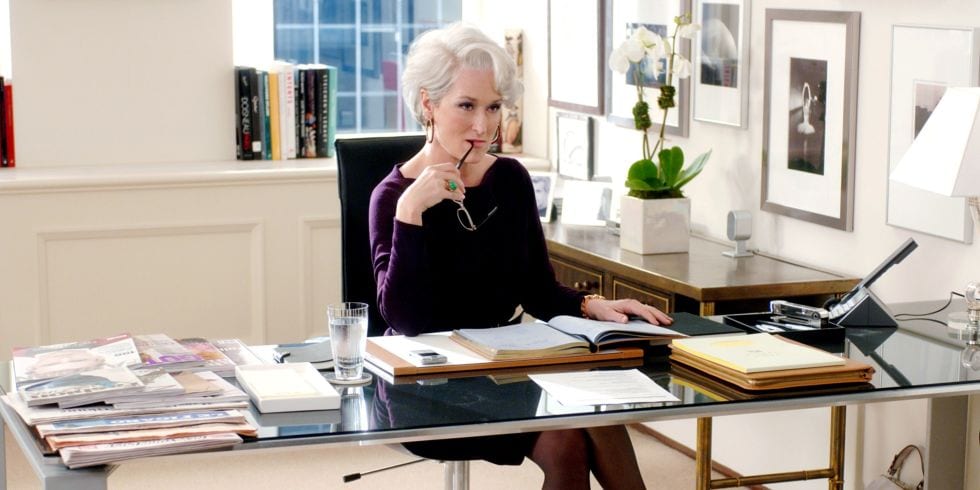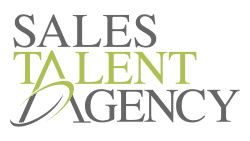 While not all bosses will be as hard to impress in an interview as Miranda Priestly in the Devil Wears Prada; preparation, dress code, timing and post interview follow-ups will set you up for success.
While not all bosses will be as hard to impress in an interview as Miranda Priestly in the Devil Wears Prada; preparation, dress code, timing and post interview follow-ups will set you up for success.
Congratulations!
This job is now within your grasp and it is up to you to ensure you put your best foot forward. Following are some simple tips and advice for how to prepare for-and conduct yourself during and after-this interview.
The most important thing to remember:
Approach the interview as though it is a sale – the product you are selling is you! Do not think you can “wing” an interview: preparation = success. Whether this is your dream job or a role that you are not sure you want yet, prepare thoroughly and always aim to get further short-listed for the role. You can always reject a job that you do not want, but you can never take back a bad first impression.
Preparation
- Make sure you know the time, location and details/role of the person you will be interviewing with.
- Thoroughly explore the Company’s website to get a feel for its products and services, its culture, and how it positions itself to its customers
- Read the job profile thoroughly and ensure you understand what you would specifically be responsible for in this role
- Ask your Sales Talent Agent why they are recommending you to move forward (this will help you understand why they think you are a good fit for the role and what the client has asked them for). Make sure you also ask what-if any-“red flags” they have about you that may put off their client (e.g. gaps in your resume that you have not adequately explained)
- List the reasons why you think you are a great fit for this specific role and prepare success stories/anecdotes that support this (e.g.: you exceeded quota each of the last 3 years and were the top performer on your team)
- List the reasons why you may not be the “ideal” candidate and prepare to address those concerns
- Prepare 5 appropriate questions that you want to ask. IMPORTANT: know the difference between an appropriate question (e.g. What are some of the challenges a person will face in their first 6 months in this role?) and an inappropriate question (e.g. How quickly can I be promoted?)
- Know your metrics: what was your quota in your last 2-3 roles? What percentage of quota did you hit? What percentage of these sales were net-new business? How did you rank compared to other sales reps in the same role? Were you responsible for sourcing your own leads? Remember: your interviewer is looking for proof that you are a great sales professional who can meet and exceed set goals, so be prepared to talk about this. If you have ANY documentation of your sales performance, or any positive letters from your clients or superiors, make sure to bring these to your interview. Proof of accomplishments is worth 1000 words and can definitely help differentiate you from the crowd
Dress code
- In the entire history of Sales Talent Agency we have NEVER had a client reject a candidate because they were “over-dressed”, but have had lots of candidates rejected because they were too casually dressed. You should be going for a clean, professional look-every time!
- No matter what the role or the company (blue-collar, white collar or trendy ad agency), you should always wear a suit (or equivalent) to an interview
- Make sure your clothes are pressed, your hair is neat and tidy, your fingernails are spotless, there is nothing between your teeth, you are clean shaven and your breath is fresh
- DO NOT WEAR perfume or cologne-no matter how many people have told you how great it smells on you! It can be extremely distracting to certain people and especially in small office spaces. You should look and smell clean. That means no sweat, no cigarettes, no perfumes. NO EXCEPTIONS
Timing
- Never be late for an interview. Traffic is never a good excuse (it makes you look unprepared, and great sales people are NEVER unprepared). Plan to be at the interview location 15-minutes prior to the interview BUT only walk into the office 5 minutes prior to your appointment
- If your interviewer is running late, use this time to try and find out more about the company. Read the magazines/internal newsletters in the reception area; watch how people within the company engage with you and each other; engage politely with the reception staff and stay off your phone (unless in an emergency)
Nerves
- It is okay to be nervous-you SHOULD be nervous! If you are too confident, you likely are not well prepared and are taking this opportunity or the interviewer too lightly. Take some deep breaths, keep a smile on your face, and don’t let the nerves over-power you.
In the Interview
- Treat an interview like you would treat the first meeting with a new prospect. In other words: remember that you are selling and that the interviewer is buying. In later stages of the interview process-once the employer has decided that you could be a valuable contributor to their company-you can start buying and let them sell the culture, package and opportunity to you. THIS IS NOT THAT TIME!
- You should be engaging and polite at all times. Listen to the interviewer’s questions and ensure you have adequately answered them.
- Be careful of asking too many or inappropriate questions at this stage. There are good questions for you to ask in a firstinterview and there are bad questions to ask. Good questions show that you are interested in the client, the culture and their goals for the role (e.g. asking the interviewer what attracted them to the company). Bad questions make you are only interested in what is in it for you (e.g. asking how much money you will make in your first year)
- Beware: Be mindful of interviews that seem really casual and friendly! It’s often a trap to see how in control you are of the sales process. Remember, your goal is to move yourself forward to the next round of the interview process. Be friendly, build rapport, but make sure you stay on focus!
Closing the Interview
- Recognize when your interviewer is trying to wrap up the interview-don’t overstay your welcome
- As a good sales person, you want to ensure you are moving to the next step. A great way to do this would be to thank the interviewer for their time, reiterate your strongest attributes for the role, and let them know that you are interested in the opportunity and moving forward. Finally ask if there are any concerns that they have that would stop you progressing further so that you can address them before your leave or follow-up with a response
Post Interview
- Immediately following your interview call your Sales Talent Agent to let them know how it went (they will then know that the interview is ended and will get additional feedback from the interviewer)
- Send a thank you email (would not suggest card – takes longer) – be sure to proof read – it is such a positive thing to do and if there are spelling/grammatical mistakes, this will only hurt you vs. help you – feel free to send to your Sales Talent Agent for review first if you want feedback
